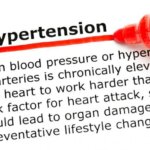Alcoholism is a public health concern that has reportedly worsened during the COVID-19 pandemic, according to new findings in the Journal of General Internal Medicine.
“Before the onset of COVID-19, the USA was experiencing rising rates of alcohol use, high-risk drinking, and alcohol use disorder (AUD) with negative consequences including increases in alcohol-related morbidity and mortality,” said co-author Dawn Sugarman and his colleague Shelly Greenfield in their findings.
“As a result of the COVID-19 pandemic, it is likely that the USA will see further increases in alcohol consumption similar to those observed in the UK and Australia, raising significant public health concerns.”
The new study, publicized by McLean Hospital calls to attention the disastrous implications associated with the recent coronavirus pandemic. In essence, widespread social isolation, economic catastrophes purportedly caused by pandemic restrictions, all are contributing to the surge of alcoholism.
Educating on how to best manage stress and anxiety without turning to alcohol should be a high priority during the COVID-19 pandemic, the study indicates. Screenings for alcohol use disorders and telehealth services should be on the increase to put a halt to the surge of alcoholism cases.
“We hope this article will call attention to the pandemic’s effects on alcohol use and offer mitigating approaches to this under-recognized public health concern,” the co-authors concluded in a news release.


